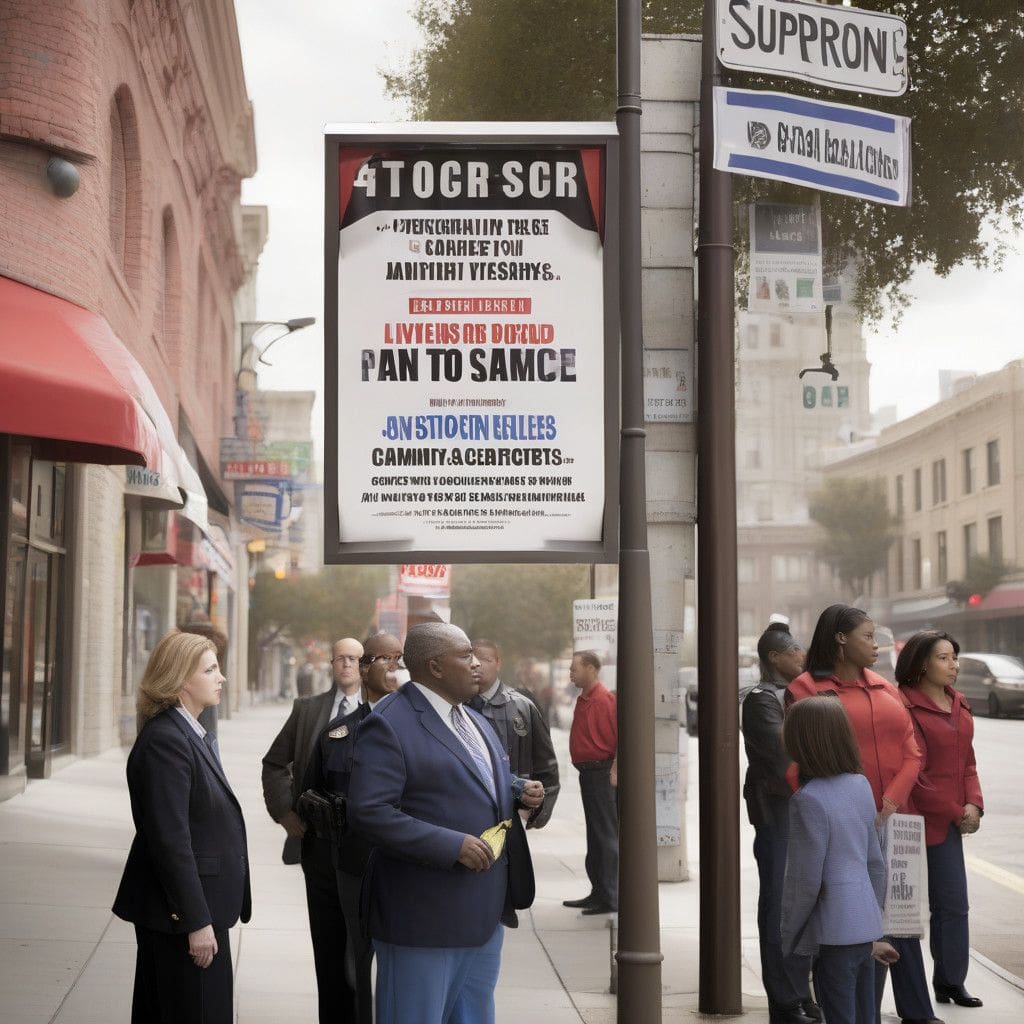In a significant shift in California’s approach to criminal justice reform, voters have approved Proposition 36, a measure that reflects rising concerns over retail theft and illegal drug use across the state. The proposition garnered substantial support, with approximately 70.5% of voters endorsing the initiative, signaling a collective call for stricter penalties associated with property crimes.
Proposition 36 effectively rolls back parts of a previous reform that was enacted in 2014, which downgraded many property and drug-related felonies to misdemeanors. This new measure brings together a rare coalition of supporters that includes Democratic mayors from major cities alongside prominent figures in the retail sector such as Walmart and Target, highlighting a unified front in the fight against crime.
The critical component of Proposition 36 is its amendment to California’s theft laws. Previously, individuals could be charged with a felony for stealing goods valued at over $950. However, under the new proposal, individuals with two theft-related convictions can now face up to three years in prison for crimes involving minor goods. This stark change aims to equip law enforcement and prosecutors with the necessary tools to address the escalating problem of shoplifting that has been reported extensively during the pandemic.
In addition to modifying theft laws, the measure introduces new provisions that target drug users. Those struggling with substance abuse will be mandated to complete treatment programs. Failure to comply could result in a maximum of three years of incarceration, thereby combining punitive and rehabilitative responses to drug use.
The approval of Proposition 36 has ignited fierce debate within the Democratic Party. While mayors of cities like San Francisco and San Jose, often seen as bastions of progressive politics, have rallied in favor of the new measure, California Governor Gavin Newsom has voiced his opposition. This division underscores the complexities of balancing public safety with reformative justice, an issue many other urban areas are grappling with.
Critics of the proposition argue that the past reforms, such as Proposition 47, have successfully decreased incarceration rates while alleviating racial disparities in arrests. Since its enactment, about $800 million in savings from prison expenditures has been redirected into vital mental health programs and social services, reinforcing the argument against rolling back reforms.
The timing of this measure’s approval coincides with a notable increase in property crimes across California, exacerbated by the social and economic challenges presented during and after the COVID-19 pandemic. Studies have indicated that property crimes surged after Proposition 47, primarily attributed to systemic changes in judicial processes influenced by pandemic protocols. Retail giants have expressed growing concern, stating that organized theft rings have significantly impacted their operations.
As California navigates this complex legal landscape, the implications for businesses are substantial. Retailers, particularly in urban areas, will need to adopt new strategies to bolster their security and prevent loss. This could involve increased collaboration with law enforcement and targeted investments in technology designed to deter theft.
Proposition 36’s passage sheds light on a broader national dialogue about crime, enforcement, and social equity. Many states observe California’s actions closely, as shifts in policy here often set precedents that resonate across the country.
With the law now enacted, stakeholders—including business leaders, policy-makers, and community advocates—must come together to evaluate the effectiveness of these changes and mitigate the adverse impacts they could present. By fostering conversations about crime prevention and reform, California can aim to protect businesses while ensuring justice and equity for all citizens.
Ultimately, the passage of Proposition 36 marks a pivotal moment in California’s efforts to balance public safety concerns with the imperative for reform. As retailers prepare for the immediate implications of this new law, the long-term effects on community well-being and criminal justice will remain a focal point in future discussions.












